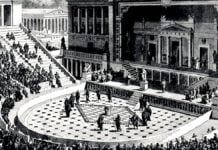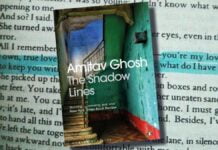Poetry can be broadly categorised into two types: subjective and objective. They are two distinct approaches to poetic expression that differ in their focus, perspective, and emotional engagement.
Subjective Poetry
Subjective poetry is introspective and focuses on the personal thoughts, feelings, and emotions of the poet. It is often written in the first person and reflects the poet’s inner experiences, emotions, and perceptions of the world. Subjective poetry is highly personal and expressive, and the poet’s individual voice and perspective are prominent.
Characteristics
- Personal Reflection: The poet’s personal emotions, thoughts, and experiences are central.
- Emotional Intensity: Strong emotional content, often involving introspection and self-expression.
- First-Person Perspective: Frequently uses first-person pronouns like “I” and “my”, making the poem a direct expression of the poet’s voice.
- Imaginative and Introspective: May delve into the poet’s imagination, dreams, and inner world.
Themes
- Love and Passion: Many subjective poems explore themes of love, longing, and passion.
- Nature and Beauty: Personal reflections on nature and beauty are common.
- Loss and Mourning: Poems about grief, loss, and the passage of time often fall into this category.
- Identity and Existence: Exploration of the self, identity, and existential questions.
Significance and Impact
- Emotional Connection: Creates a solid emotional bond between the poet and the reader, allowing for empathy and personal resonance.
- Expressive Freedom: Provides poets with the freedom to explore and express their inner world and personal experiences.
- Influence on Romanticism: Played a crucial role in the Romantic movement, which emphasised individualism and personal emotion.
Examples of subjective poetry include works by poets like William Wordsworth, John Keats, Emily Dickinson, and Sylvia Plath, which focus on the poet’s inner world and emotional experiences.
Objective Poetry
Objective poetry is more impersonal and detached from the poet’s emotions and personal experiences. It focuses on external objects, events, or situations in the world, and the poet takes a more observational and descriptive approach.
Characteristics
- Impersonal Tone: The poet maintains a distance from the subject matter, often using a third-person perspective.
- Descriptive and Narrative: Emphasis on detailed descriptions and storytelling rather than emotional expression.
- Universal Themes: Deals with broader, universal themes rather than personal experiences.
- Clarity and Precision: Language is often clear, precise, and focused on depicting the external world accurately.
Themes
- Historical Events: Objective poems may recount historical events or societal issues.
- Myth and Legend: Retelling myths, legends, and folktales without personal interpretation.
- Nature and Landscapes: Descriptive poems that focus on the external beauty and intricacies of nature.
- Characters and Stories: Narratives about other people’s lives and experiences, not necessarily related to the poet.
Significance and Impact
- Broader Appeal: Often appeals to a wider audience due to its focus on universal themes and impersonal tone.
- Narrative Strength: Excels in storytelling and descriptive power, providing vivid imagery and detailed accounts.
- Cultural and Historical Value: Preserves and communicates cultural, historical, and social narratives, contributing to collective memory and understanding.
Examples of objective poetry include works by poets like T S Eliot, Ezra Pound, and Wallace Stevens. These works focus on depicting the external world and exploring themes through objective observation and description.
Both subjective and objective poetry offer unique ways of exploring and expressing the human experience. Subjective poetry allows for deep personal expression and emotional connection, while objective poetry provides clarity, narrative strength, and a broader perspective on the world. The distinction between subjective and objective poetry lies in the poet’s approach to the subject matter and the emphasis on personal emotions versus external observations. Both styles have their merits and contribute to the richness and diversity of poetic expression.
It’s important to note that these categories are not absolute, and many poems may possess elements of both subjectivity and objectivity. Some poets intentionally blend the two styles to create a unique poetic voice or to explore complex themes and perspectives. Together, they enrich the literary landscape, offering diverse methods for poets to convey their insights and for readers to engage with the text.




























